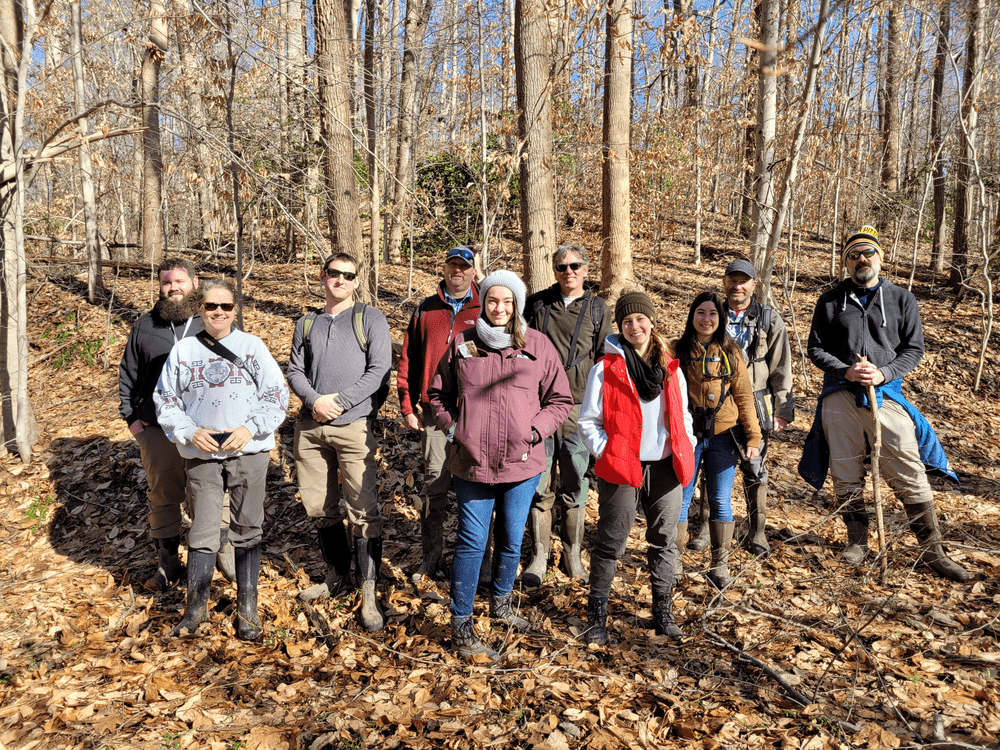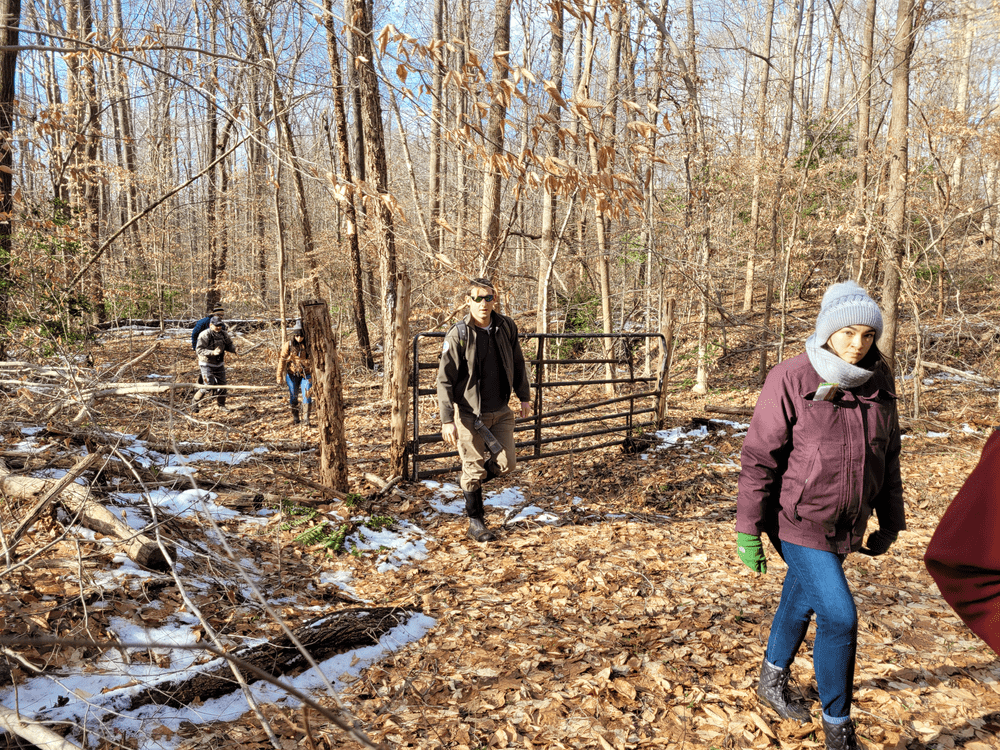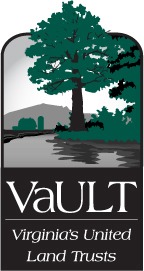Conservation Conversations with Julia Gasink

We sat down with Julia Gasink, a University of Mary Washington senior majoring in Biology and a certificate in Geographic Information Science, to discuss her experience as an NVCT team member through her Virginia Conservation Fellowship. Read below and learn about this bright young woman and how this unique opportunity has impacted her outlook.
Interview conducted by NVCT Communications Coordinator, Aaron Kershaw
First, I want to acknowledge how great it’s been to have you as part of our team. You brought great perspective and energy to NVCT, and we believe your significant impact will linger among us.
Q: Alright, first question: You joined us through the Virginia Conservation Fellowship Program, but I understand you had a few other opportunities from which to choose. What made you decide NVCT would be where you would do your fellowship?

Well, like I said, I was exploring both websites to find out more about the organizations. When I heard the brief intro to NVCT, I wasn’t sure if that was really my thing because I had never heard of a land trust or anything, but when I got the call with you (Aaron Kershaw) and Mary, it really felt like a candid conversation, and I really felt like a part of the team… We talked for over an hour and 15 minutes, and my interview with the other organization was 9 minutes. And I really felt like I was valued as a person and that I would really have a chance to find my place,. Which was what I was looking for., I want career courier experience, not just an internship, and that’s definitely what I found here. I’m really grateful to be a part of the projects I was here, and it’s really great to hear that you think they will be lingering. I want to make my mark, and learning about all these amazing people with Conservationists of Color, I feel like I’m getting there too.
Q: The “Conservationists of Color” campaign was a true passion project for you. How did your experience and how you self-identify encourage you to engage with the campaign? Secondly, are you happy with the results, considering all the dedicated research you put into it?

Oh, my expectations were far exceeded. I wasn’t really sure what was going to come out of it. I was sure it was going to be like a stack of files. I feel like that’s what other organizations would do. Like, “cool, we’ll just pretend we’re going to do something about that later.” But it getting published, and you (Aaron Kershaw) making infographics, I really feel like the work that I’ve put in has been respected, and I just really like having those conversations with you and Mary where we really get to dive into these people and their lives and what they overcame to do incredible things for the environment on both small and large scales what they did.
Q: Where did you grow up? And how do you think it impacted your decision to do what you do today?
I grew up in Newport News, Virginia, which is in the Tidewater region. Very, very different from Northern Virginia, but I’ve always felt very strongly about environmental justice. I took an Environmental Systems in Societies class in high school. We did a model UN thing where we got to pretend to be different countries and stand up for environmental rights. I felt really passionate about that, and I took it really seriously. My Mine country was Honduras, and I got to advocate for environmental conservation and ethical resource use. It’s not Honduras’ fault that climate change is a thing. They’re a very small country, and they should be able to use their own natural resources in a sustainable way., and it’s not fair that we stole them from them.
Q: You majored in Biology and are certified in Geographic Information Science. How does (GIS) help organizations like ours work more efficiently?
I’m helping Matt with the strategic conservation plan because I’ve been doing GIS for so long now that I can easily wrap my head around things.

The thing about GIS is that there is no procedure. All of it has to be putting the toolbox together that you already know, which can make the project kind of hard.
Especially if you are not experienced with it; you don’t know what tools are out there to offer. I felt like with my skill set, I was able to put together NVCT’s layers more efficiently and in a better way because I could cut them out perfectly. It was fulfilling doing that as well because it was something that Matt presented to the contractors, something that I did, and that was pretty cool. I also used some NVCT data for my GIS capstone to get my certificate. I did an analysis of the urban heat islands (UHIs) in the Northern Virginia Conservation Trust service area to see where you might need to conserve land in order to prevent those urban heat islands from getting worse. Just kind of like Hattie Carthan, one of the people I researched for CoC. She did great things for her community by protecting trees in her urban area, so she was kind of cool.
Q: How does it feel to know that your work organizing the data used in such programs has a measurable impact on protecting the land, water, and all the life that inhabit it?
It’s definitely fulfilling to know that what I’ve done at NVCT has made an impact on protecting the land and its inhabitants in my community. I always knew I wanted to use GIS to help people or the environment. No offense to urban planners, but that just sounds so boring.
Using GIS to help NVCT is awesome because it’s using science and data to actually make a difference in the world we live in.
Whether it’s conservation or epidemiology or something like that, that is something I am definitely more passionate about helping the environment and my community because I really want to make a positive impact on the world.
What do you think is the biggest takeaway from your time at NVCT?
My biggest takeaway is I think that I can make a difference. At first, I saw myself as “just an intern,” and I just kind of voiced on myself as a “dead, 9-5 worker” and easily replaceable, but my time at NVCT has shown me that I can really bring a unique skill set and perspective to anywhere now, and that’s a thing that people should respect. NVCT has helped me develop confidence in myself and in my work, and I will take that with me everywhere I go from now on. And if they don’t, then they aren’t worth my time anyway.
